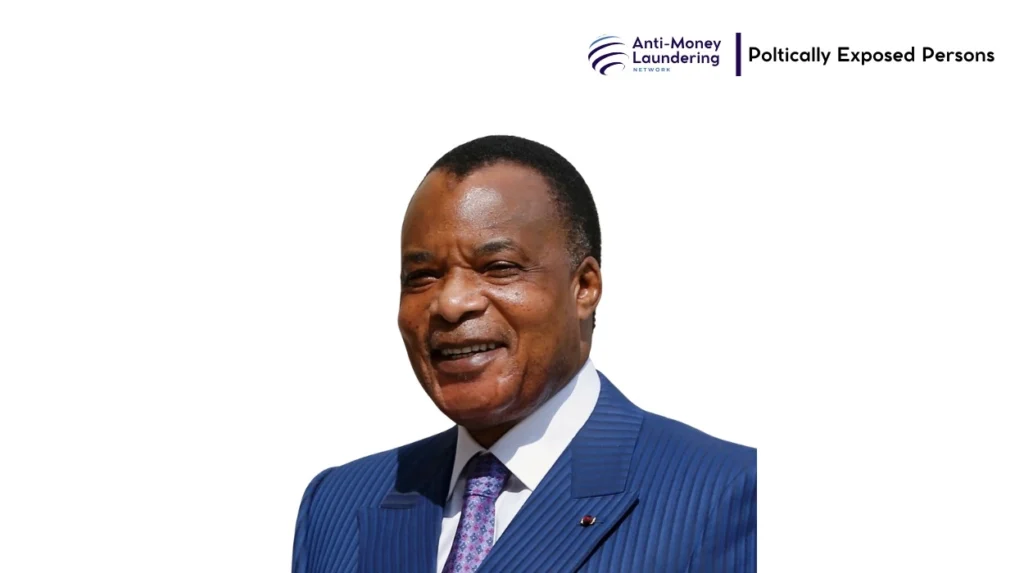Denis Sassou-Nguesso is a significant political figure in Central Africa, serving as the current president of the Republic of Congo. Born in 1943 in a rural part of northern Congo, Sassou-Nguesso has had an extensive and complex political career that spans several decades. His leadership has seen periods of both consolidation and controversy, intertwined deeply with the country’s political evolution. This article provides a comprehensive profile of his early life, family, career, lifestyle, legacy, and the challenges related to financial transparency, reflecting on both his achievements and the criticisms he faces.
Early Life and Background
Denis Sassou-Nguesso was born on 23 November 1943 in Edou, a small town in the Oyo district of northern Congo. He belongs to the Mbochi ethnic group, which has been a key part of his political base. His parents were Julien Nguesso and Émilienne Mouebara, with his father being a local chief hunter, reflecting Sassou-Nguesso’s deep roots in the traditional leadership of the region.
For his education, he attended primary school in Fort Rousset (now Owando) and continued at the Dolisie Normal College between 1956 and 1960. He later joined the army in 1960, receiving formal military training in Algeria and France. This early military training was foundational, helping shape his disciplined approach and facilitating his rise in Congo’s political structure through military influence.
Personal Life and Family
Denis Sassou-Nguesso’s personal life has been closely tied to his political journey. He is married to Antoinette Sassou Nguesso, a figure who, while maintaining a relatively low public political profile, has supported his long-standing leadership. The couple has several children, forming the Denis Sassou-Nguesso family that holds significant influence in the country.
One of their children, Denis Christel Sassou Nguesso, is particularly noteworthy. He has been involved in politics and business but has also faced frequent allegations of corruption and mismanagement tied to the family’s wealth. The family’s influence continues into the next generations, with grandchildren maintaining the legacy of the Sassou-Nguesso name in Congolese elite circles.
Political Career and Achievements
Denis Sassou-Nguesso’s political career began earnestly after his military training, rising quickly to become a commanding officer. In 1979, he became president after a military coup, taking the helm of the then Marxist-Leninist one-party state under the Congolese Party of Labour (PCT). He was head of state from 1979 to 1992, during which he centralized power and aimed to develop the country through state-centric economic policies.
His first presidency saw the introduction of reforms toward a market-oriented economy, marked by the privatization of some state enterprises and attempts to combat corruption, albeit with limited success. In 1990, amidst political unrest and pressures for democratization, Sassou-Nguesso introduced multi-party politics. However, the 1992 elections, meant to mark Congo’s democratic transition, resulted in his defeat to Pascal Lissouba.
Following his electoral loss, Sassou-Nguesso led an opposition challenged by a civil war from 1997, which culminated in his return to the presidency. Since then, he has been re-elected multiple times, frequently amid controversies regarding the fairness and competitiveness of these elections. His leadership since 1997 has focused on stabilizing Congo post-civil war, rebuilding infrastructure, and leveraging oil wealth for economic growth. Internationally, he has held notable roles, including chairing the Organization of African Unity in 1986 and the African Union in 2006, where he played a mediatory role in African conflicts.
Lifestyle, Wealth, and Assets
The net worth of Denis Sassou-Nguesso is subject to much speculation, with estimates suggesting substantial personal wealth linked mainly to Congo’s oil reserves and state resources. Despite Congo being a country with high poverty rates, Sassou-Nguesso is known to enjoy a luxurious lifestyle, including multiple palaces and properties. Allegations have also been made concerning the use of offshore companies and hidden assets, often tied to his family members, raising questions about financial transparency.
His family, including his wife and children, are believed to control significant assets, some of which have been the subject of international scrutiny and legal investigations. Reports have highlighted the challenges of tracking illicit wealth and the political system’s role in facilitating elite impunity.
Influence, Legacy, and Global Recognition
Denis Sassou-Nguesso’s influence stretches well beyond Congo. As one of the longest-serving leaders in Africa, his legacy is complex. On one hand, he is credited with bringing relative stability to a country once torn by civil conflict and for advancing key economic reforms. On the other hand, concerns about authoritarianism, repression of political opposition, and corruption continue to tarnish his reputation.
Internationally, Sassou-Nguesso has been involved in shaping regional policy and mediating conflicts, enhancing his stature as a key African statesman. His leadership roles in the African Union and various regional bodies underscore his significance in continental geopolitics, even as domestic criticisms persist.
Financial Transparency and Accountability Challenges
As a Politically Exposed Person, Denis Sassou-Nguesso’s financial dealings are under constant scrutiny. Despite credible evidence suggesting misuse of state resources and corruption involving his family, enforcement agencies and judicial authorities in Congo face significant obstacles in holding him accountable. The intertwining of political power and financial interests has created a system where transparency is limited, and governance reforms are undermined.
International watchdogs have called for greater scrutiny of assets linked to the Sassou-Nguesso family, particularly targeting networks used to hide and launder wealth. The lack of accountability mechanisms contributes significantly to ongoing governance challenges and impunity for political elites.
Denis Sassou-Nguesso remains a defining personality in the political history of Congo and Central Africa. His long presidency, interspersed with periods of reform and conflict, reflects both the opportunities and difficulties faced by post-colonial African states. While his leadership has brought certain economic growth and regional influence, the legacy of his tenure is inseparable from allegations of corruption, limited political freedoms, and opaque governance. The story of Denis Sassou-Nguesso is essential for understanding the complexities of power, wealth, and political survival in resource-rich but institutionally fragile countries.

